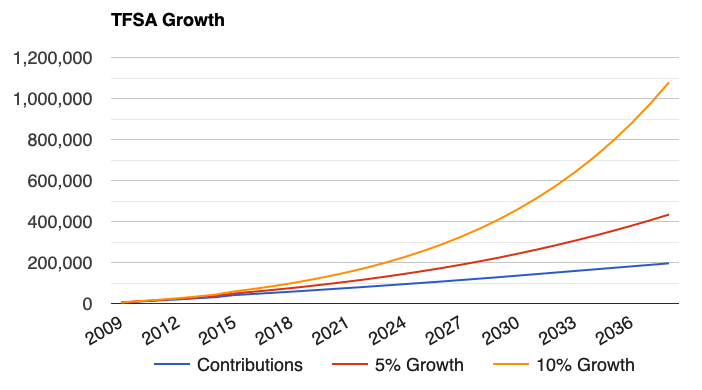Every DIY investor at one point or another is looking to make a big play and win big. If you don’t have much money to invest, Shopify tends to be out of the question but penny stocks become appealing for some.
However, investing in penny stocks is not the same as investing in big blue-chip stocks. It’s a risky investment strategy and access to company information and finances can be limited.
Before you dive into buying Canadian penny stocks, know that a solid portfolio strategy can get you solid results as seen below.
| Accounts | ROR | Yield |
|---|---|---|
| Computershare | 12.52 | 5.62 |
| Portfolio | 13.30 | 2.10 |
| RBC | 9.64 | 14.83 |
| RBC-S | 12.94 | 4.69 |
| RRSP | 17.13 | 0.71 |
| RRSP-S | 13.60 | 0.90 |
| TFSA | 12.75 | 0.71 |
| TFSA-S | 15.16 | 2.30 |
| TSX | 7.51 | 0.00 |
Let’s go over some Penny Stocks Frequently Asked Questions to understand that such investments are risky. While it could make you money, it’s not a portfolio strategy but rather a play-money approach where you are willing to lose it all.
What is a penny stock in Canada?
A penny stock generally refers to the stock of a small company and will trade under $5 per share.
The so-called penny stocks will not usually trade on a major exchange. If you find some, they either had a recent struggle with the stock price and will possibly be delisted from the exchange or still maintain a high trading volume and are not small-cap companies.
Penny stocks usually trade through the over-the-counter (OTC) market or pink sheets. Since shares of penny stock often have limited availability, it’s not always easy to buy and sell.
Be sure to not confuse a Canadian small-cap stock on the TSX with a Canadian penny stock.
For example, take New Gold Inc (TSE:NGD), a gold stock that trades on the TSX and has a price of $2.10. It seems cheap enough to be a Canadian penny stock but it has a market capitalization of $1,42B and a daily volume of 1,955,617. This is not a penny stock. This is the case of a company that has seen its share price decline from $14 per share in 2012 to $2 per share in 2021.
Can Penny Stocks Make You Rich?
Well, it can be just like playing the lottery can. Canadian penny stocks are by nature risky investments as they don’t usually trade on a major exchange and do not have to meet the larger exchange financial requirements. In short, the financial bar is set lower.
The strategy is to understand where the business can go and if it can rebound or take off.
If you find one of them and the price is 20x, then you make money but it’s always relative to how much you invested. I would say that getting rich from penny stock is the same as prospecting for gold. You can probably do better with day trading than penny stock I would venture.
Lots of time and energy could be put towards a more diligent investing strategy such as dividend growth investing.
A good annual rate of return will do the magic over time simply by investing in solid blue-chip stocks.

What Are Good Canadian Penny Stocks?
Penny stocks tend to trade on news and momentum so if you hear of a good one today, the run-up is probably done.
Finding good Canadian penny stocks requires going through each of them with a screener and deciding on the business you might be able to understand.
You can start with the TSX VentureExchange (TSXV) and screen for the stocks you are looking for. Technically, the more volume, the more interest from some investors and it also implies more volatility and speculation.
Some of the new stocks are cryptocurrency and blockchain companies for example.
Which Account Should I Use With Penny Stocks?
We can never avoid talking about income taxes. As it happens, investing in penny stock is risky and while the reward could be good, you should position yourself to write off the capital loss.
To write off any loss, you need to invest your Canadian penny stocks in your unregistered account.

